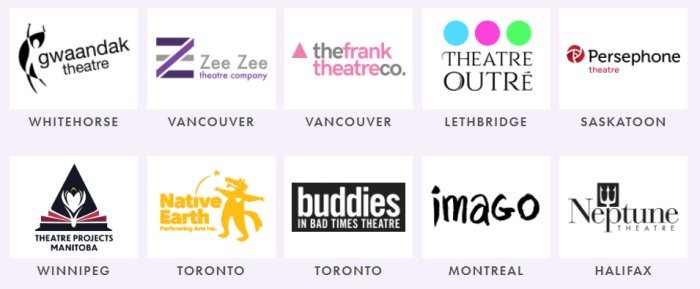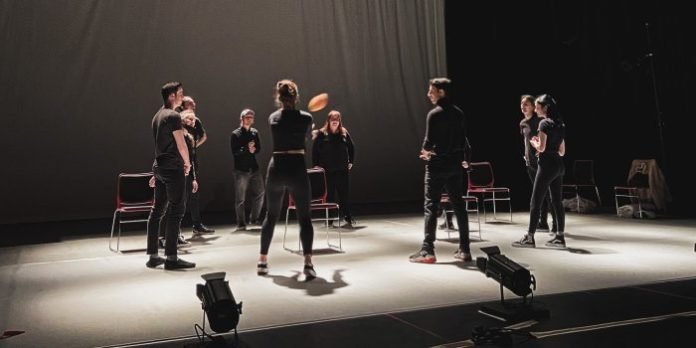Halifax’s Neptune Theatre is among ten theatre companies from across the country to sign on to Canada’s first-ever queer and trans playwriting unit.
Art has the power to elevate voices and ideas that can change the world. Now, more than ever, the arts sector needs to prioritize those who have been systematically left out of the conversation. – Cameron Mackenzie.
Led by Vancouver’s Zee Zee Theatre, the national playwrighting unit will provide five 2SLGBTQ+ emerging and mid-career theatre-makers with an opportunity to participate in the 10-month process, where they will receive a living wage and one-on-one mentorship as they write a new work. The developed plays will be performed live and streamed online in September of 2023.
Borne out of Zee Zee Theatre’s difficulty finding works created by Canadian queer and trans theatre-makers, the goal for the playwrighting unit is to provide a more equitable representation of 2SLGBTQ+ artists and stories on stages across the country.
“Art has the power to elevate voices and ideas that can change the world,” says Zee Zee Theatre’s artistic and executive director, Cameron Mackenzie. “Now, more than ever, the arts sector needs to prioritize those who have been systematically left out of the conversation.”
Calling the project’s impacts “far-reaching and numerous,” Mackenzie says the chosen playwrights will receive growth, stability, and a national platform for their voices and stories.
“For the consortium companies, it creates a new body of work and connects them with vital queer and trans communities,” he says. “For our sector as a whole, it offers new representation and reflection in ways that are meaningful and non-tokenizing.”

For Halifax’s Neptune Theatre, signing on to the initiative furthers the professional theatre company’s mandate.
“Neptune has been on our own mission to create greater representation in our programming, teams, and the work we do,” says Neptune artistic associate Annie Valentina, who will lead the project locally.
“I’m a dramaturge, playwright, and a member of the queer community, so it was a no-brainer that this was an initiative I wanted to be actively involved in,” she continues.

The first stage of the process is for theatre-makers identifying as 2SLGBTQ+ to apply to the program. Once applications close on July 5, the consortium will choose the five artists for this first cohort.
Neptune’s participation beyond the initial selection process will depend on where the selected artists reside.
“If it ends up at one of the five artists accepted into the unit is from the Maritimes, then we would probably have a more hands-on role, whether through workshops or readings, or further development,” says Valentina.
As part of the selection committee, Valentina is looking for applications that offer a broader representation of identities and queer stories.
“It’s going to be key to see stories that do not just have LGBTQ+ artists, but also stories that are not being told through a heteronormative lens,” she says. “For instance, typically when we see love stories, the romantic leads are always cisgender, and maybe that doesn’t have to be the case.”
At the end of the ten-month process, each play will be produced as a staged reading by one of the consortium members, while the other companies will offer streaming access to their communities. The consortium will then commit to full productions or further development of all five new scripts generated in the unit.
For more information and to apply to the National Queer and Trans Playwright Unit, visit zeezeetheatre.ca.


